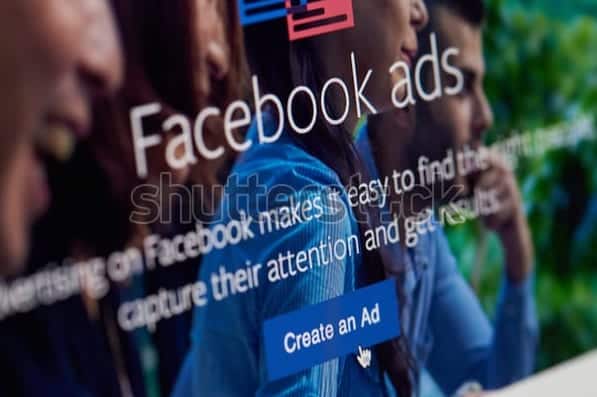
Minnie Che is a student at Harvard Law School.
The National Treasury Employees Union, a large federal employee union, has published a series of labor recommendations for transition, entitled “United for America,” for President-elect Biden’s administration. In it, the union recommends that the new administration must re-empower the federal workforce by rolling back the Trump administration’s policies that have dampened collective bargaining and other employee rights. The first step is to immediately rescind 2018 executive orders that made it easier to fire federal workers and weakened federal employee unions. The new administration must also repeal orders that aim to convert segments of the federal workforce into a new job classification lacking any civil service protections and barring agencies and federal contractors from conducting diversity and inclusion training. The union also believes that it is important to reinstate labor-management partnerships as they believe that working collaboratively and in good faith on a regular basis could solve many labor-management issues.
Last week, Facebook announced that it was banning ads related to “social issues, elections or politics” in an effort to prevent the dissemination of false information. But this restriction has negatively impacted socially driven businesses connected to issues of hunger, the environment, and immigration that have no direct relation to partisan politics. One such company, Hippy Feet, employs homeless youth to package socks, the profit of which will go towards helping fund employment programs for homeless youth ages 16-24. The algorithm placed homelessness into the political category. Another company, Epimonia, turns recycled refugee life jackets into bracelets to raise awareness with 50% of profits donated. Facebook considered them political because they refer to refugees in their advertisements. These businesses rely on social media to gain customers and fear that the extension of the ban on November 11 will lead to the collapse of their company. Sarah Schiff, a Facebook product manager, stated “We know this may be disappointing, but we encourage businesses to run ads about other topics and reach people during this time through their organic posts and tools such as fund-raisers on Facebook and Instagram.” While Facebook’s objective is to rightfully protect the integrity of the election, the policy has cast a wide net with unintended collateral consequences.
The Roosevelt Hotel in New York City has been ordered to pay more than $500 million to employees that have been displaced by Covid-19, as a result of the hotel’s permanent closure. The arbitrator’s ruling represents the largest hotel-employee payout ever awarded in New York City and likely for any hotel-union group in the country. Onlabor has posted about the pandemic’s devastating impact on the hospitality industry, and this payout is increasing tensions between hotel owners and union members. With Broadway theaters closed and other attractions in New York unable to operate at full capacity, hotels have been forced to shut down and it may be years before their hotels will see a profit. The occupancy rate in New York hotels is close to 10%, said one hotel owner. Some hotel owners received assistance through the Paycheck Protection Program, and a number of them used those funds to support employees. Critics of the payout say that it could have long-term consequences for the industry and lead to more permanent closings and loss of jobs. But others believe that paying severance will incentivize hotels to reopen so they can stop making payments.
Apple announced that starting next year, it will half the commission from App Store sales it charges smaller developers who generate less than $1 million in revenue. The commission fee will reduce from 30% to 15%. The decrease comes after complaints from other tech companies and consumers that Apple’s large share unfairly impacts a company’s ability to invest in software development. Even social media giant, Facebook, have requested fee reductions, to which Apple denied the request. Microsoft and Facebook, amongst others, have complained that Apple’s practices are monopolistic and gives its own products an advantage in the marketplace. Congress, the Justice Department, the European Union, and the Federal Trade commission are investigating Apple on antitrust grounds. Epic Chief Executive Tim Sweeney believes that Apple’s reduction of fees for some companies is a strategic move to “remove enough critics that they can get away with their blockade on competition and 30% tax on most in-app purchases. But consumers will still pay inflated prices marked up by the Apple tax.”






Daily News & Commentary
Start your day with our roundup of the latest labor developments. See all
January 25
Uber and Lyft face class actions against “women preference” matching, Virginia home healthcare workers push for a collective bargaining bill, and the NLRB launches a new intake protocol.
January 22
Hyundai’s labor union warns against the introduction of humanoid robots; Oregon and California trades unions take different paths to advocate for union jobs.
January 20
In today’s news and commentary, SEIU advocates for a wealth tax, the DOL gets a budget increase, and the NLRB struggles with its workforce. The SEIU United Healthcare Workers West is advancing a California ballot initiative to impose a one-time 5% tax on personal wealth above $1 billion, aiming to raise funds for the state’s […]
January 19
Department of Education pauses wage garnishment; Valero Energy announces layoffs; Labor Department wins back wages for healthcare workers.
January 18
Met Museum workers unionize; a new report reveals a $0.76 average tip for gig workers in NYC; and U.S. workers receive the smallest share of capital since 1947.
January 16
The NLRB publishes its first decision since regaining a quorum; Minneapolis labor unions call for a general strike in response to the ICE killing of Renee Good; federal workers rally in DC to show support for the Protecting America’s Workforce Act.